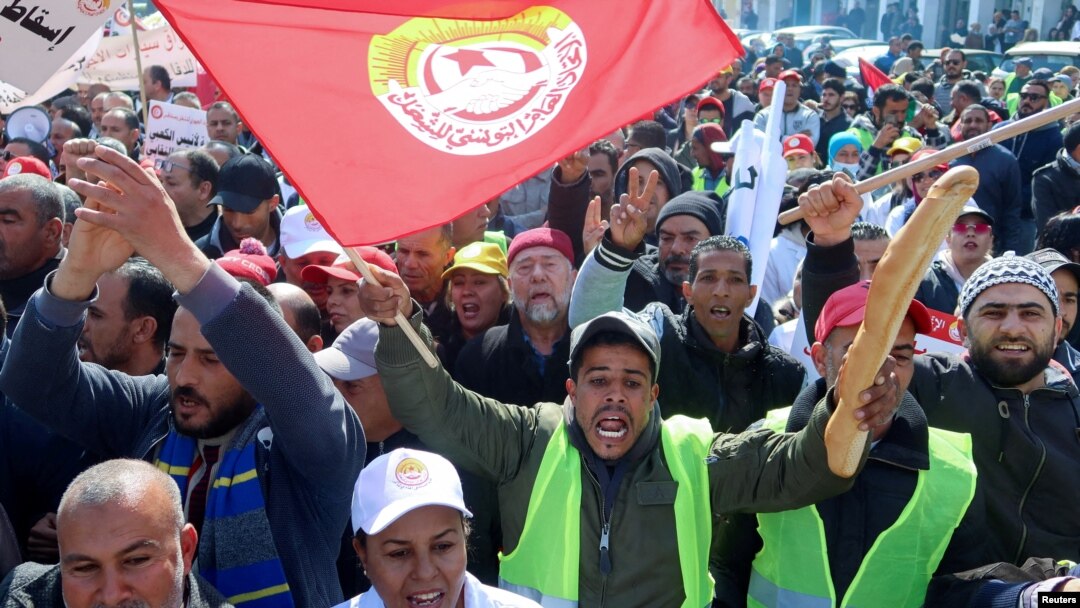Tunisia is seeking a bailout package worth nearly $2 billion from the International Monetary Fund, which conditions any aid on a series of reforms.
As Noureddine Taboubi of the Tunisian General Labor Union (UGTT) was giving his May Day speech in the capital Tunis, protesters in the country's second city Sfax denounced "an IMF government," saying "'No' to colonization."
"We back the position of the president," Kais Saied, who last month rejected what he called IMF "diktats" for Tunisia to be granted the loan, Taboubi said.
Despite an agreement in principle on the loan, agreed in October, talks with the IMF have been stalled for months over Saied not committing to restructure public bodies and lift subsidies on basic goods.
The IMF has called for legislation to restructure more than 100 state-owned firms, which hold monopolies over many parts of the economy and in many cases are heavily indebted.
Taboubi on Monday said the president had "aligned himself" with the UGTT which opposes the sale of public companies and the lifting of subsidies.
"This makes us wonder whether there is any value in the government negotiating with the IMF," he said.
Taboubi said the IMF's conditions for granting the bailout would "impoverish the Tunisian people even more" in a country where inflation is already more than 10 percent and unemployment is higher than 15 percent.
Late last month the UGTT said there were major differences between Saied and the government led by Prime Minister Najla Gouden which, the union claimed, was engaged in "secret negotiation" with the world lending body.
In a statement, it attacked "the global lending funds that seize such opportunities to dictate the conditions and dominate the economies of countries experiencing crises such as ours."
Tunisia Union Slams Government on IMF Talks

A supporter of the Tunisian General Labor Union (UGTT), carries bread as he shouts slogans during a protest against President Kais Saied's policies, accusing him of trying to stifle basic freedoms including union rights, in Sfax, Tunisia, Feb. 18, 2023.
TUNIS - Tunisia's largest union on Monday attacked the government's handling of negotiations with the IMF on a loan to bail out the North African country as it slides deeper into debt.


